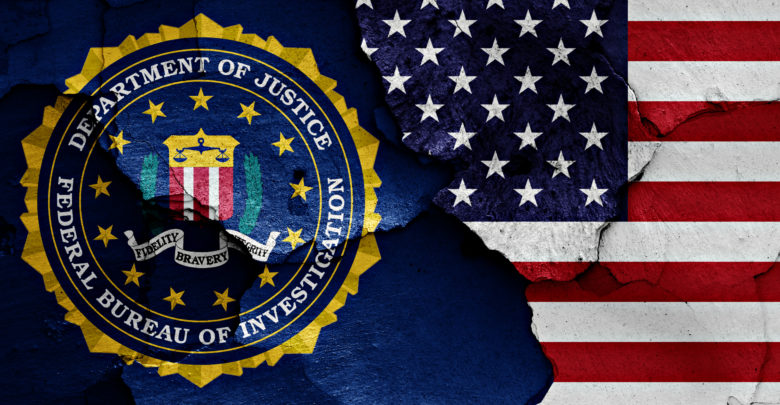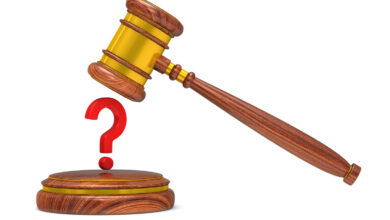The Case for an FBI Investigation of the Sexual Assault Claim Against Kavanaugh

Any confirmation process that omits an FBI background investigation into Dr. Christine Blasey’s accusation of sexual assault by Supreme Court nominee Brett Kavanaugh will forever be rightly viewed as illegitimate.
But it looks like there will be no investigation because Donald Trump has concluded (at least for now) that there’s nothing in it for him.
He’s probably right about that.
An investigation would get us closer to the truth, but getting closer to the truth isn’t Trump’s game. He’s about winning battles, and he has everything to lose, and little to gain from an FBI investigation.
The odds that an FBI investigation would exonerate Kavanaugh are close to zero. As long as there’s no videotape, and Blasey, Kavanaugh and the third person in the room, Mark Judge, stick to their stories, and there’s no oddball claim of mistaken identity, the only way the FBI could affirmatively disprove Blasey’s allegation is to determine that Blasey and Kavanaugh could not have crossed paths at a party during that period.
That’s not going to happen. Not even Kavanaugh is making that claim, and numerous people within their small social circle have made it clear that their paths inevitably crossed at parties and other social events.
Yes, it is equally true that there is almost no way the FBI could conclusively determine that the assault did take place.
The FBI could confirm enough of Blasey’s accusation to give it substantial credibility
But the FBI most definitely could confirm enough of the facts surrounding the allegation to give it substantial credibility.
For starters, an FBI investigation could confirm that Kavanaugh and Blasey crossed paths frequently during their high school years. Both attended small, elite private schools in the same community. The students at those schools mingled regularly at parties, dances and other social events. One of Blasey’s classmates has already publicly described the “Venn diagram” of intersecting circles between Kavanaugh’s Georgetown Preparatory School and Blasey’s Holton-Arms High.
It isn’t much of a stretch to believe that an FBI investigation also might find students who remember specific parties at which both Kavanaugh and Blasey were present. And that there was drinking at those parties. And that Kavanaugh and his buddy Judge did their fair share (or more) of that drinking.
Kavanaugh will not be able to deny any of this. His smarmy “what happens at Georgetown Prep stays at Georgetown Prep,” his proud membership in the “Keg City Club,” and his and Judge’s thinly veiled references to bouts of blind drunkenness foreclose any such denial, as doubtless will the testimony of dozens of his schoolmates.
It is also possible, even likely, that somebody at one of those parties will remember something specific that supports Blasey’s allegation. For instance, somebody might remember Kavanaugh and/or Judge being drunk at a party also attended by Blasey. Or the three of them disappearing from the party for a period of time, possibly even going into a closed room together. Or Blasey leaving the party shaken and disoriented.
The fact that Kavanaugh didn’t assault all of the women who knew him doesn’t mean he didn’t assault Blasey
The FBI also could find less-specific, but nevertheless significant supporting evidence. A draft letter circulated by Holton-Arms alumnae called Blasey’s allegations “all too consistent with stories we heard and lived while attending Holton. Many of us are survivors ourselves.”
Yes, 65 other women who knew Kavanaugh in high school have written a letter supporting him, saying that he always treated them with “decency and respect.” There is no reason to doubt the truth of this testimony, and it should be taken into account as support for his character. But it only goes so far.
The fact that Kavanaugh didn’t assault all the women who knew him doesn’t mean that he didn’t assault Blasey.
An FBI investigation also would probe the aftermath of the alleged incident, short- and long-term. That, too, likely will uncover evidence tending to support Blasey’s account.
One Holton-Arms alumna, Cristina King Miranda, has posted on Facebook that “many of us heard a buzz about it indirectly with few specific details.” While Miranda has since taken down the Facebook post in a vain attempt to stop the media circus, and made it clear that she has no first-hand knowledge of the assault, she has not backed off on her statement about having heard “a buzz about it.” Miranda certainly would be interviewed if there were an FBI investigation, and her testimony doubtless would lead the FBI to other witnesses.
The longer-term aftermath also would likely support Blasey’s allegation. If it can be confirmed that she told the Kavanaugh story to a marriage counselor in 2012, that would effectively kill the accusation that she made this all up as a political stunt to derail Kavanaugh’s nomination.
Finally, as many have already pointed out, if Blasey were making this all up, there’s no way she would have put Kavanaugh’s friend and supporter, Mark Judge, in the room at the time of the alleged assault. Or called for an FBI investigation, during which she would have to testify under penalty of perjury.
At the end of the day, none of this would prove conclusively that the alleged assault took place. Or that it didn’t. It would take a videotape or a confession to do that.
But we deal with imperfect evidence every day, in courtrooms, at the workplace, in government, and at home. The fact that we don’t have perfect evidence doesn’t, and shouldn’t, stop us from making personal and professional judgments that have real consequences.
And we know that an FBI investigation would, at the least, provide the senators substantial circumstantial evidence that would aid their questioning of witnesses, and assist in weighing the respective credibility of Kavanaugh and Blasey.
And we also know that if Kavanaugh is confirmed without such an investigation, that confirmation will forever be tainted.





I am thoroughly skeptical of the value of investigating a claim that can neither be proven nor disproved. Just as with Anita Hill’s claim of sexual harassment, neither proven nor disproved, that regardless will always follow Justice Thomas, so this claim against Kavanaugh will result in the same taint wherever he ends up. Certainly this tempest will make little difference during confirmation decisions, I suspect.
Furthermore, let’s say that Thomas was in fact guilty as claimed by Hill. Do you then believe that such guilt made any difference to his subsequent Supreme Court performance or even competence as a Justice? Granted, the “charge” against Kavanaugh is for a more severe crime than Hill’s charge. And let us presume that he is also guilty. Would his performance as a Justice likely be affected any more than Thomas’ was? Will it make a difference if he is not guilty or guilty if Roe comes up again? As an aside, will it make a difference if his wife is now royally pissed off at the possibility of his guilt? She will know if he is telling the truth.
None of us wants to see another conservative on the SC bench at this time in our history. But, Republican presidents choose conservatives and Democratic presidents choose liberals. No president these days is going to choose a moderate. Sometimes though presidential expectations for their successful nominee’s decisions are not always fulfilled. And this is because once a judge becomes a Justice, occasionally the greater calling moves that person to a different place from where he or she came.
Thanks for your comment, Bradley. I hear what you’re saying, and I agree with a lot of it, but I guess I have a somewhat less complex view of the need for an investigation. It starts with the simple proposition that we shouldn’t elevate somebody to the Supreme Court of the United States who has committed an attempted rape. Not because we can predict how that incident will impact his judicial decisions, but because appointment to the Court is an enormous honor that reflects on the character of our country, and we should aim higher and demand better. If credible accusations have been made, as I think is the case here, they should be investigated, not because we think an investigation will yield an indisputable answer, but because it might help bring us information that we can use to make our own decisions about the credibility of the accusations, because serious allegations against public officials should not be swept under the rug, and because refusing to investigate an attempted rape by a person about to be installed for life in one of the most important positions in our government would be obscene (to me, at least).